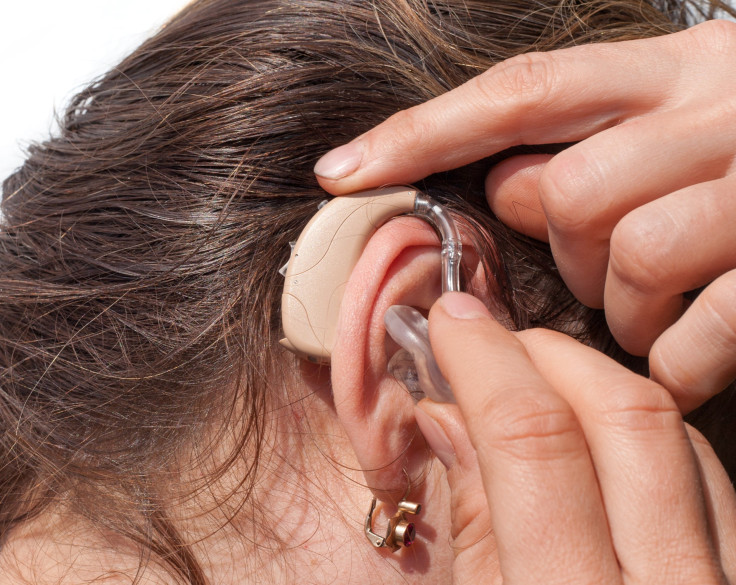Osteoporosis Linked To Higher Risk Of Sudden Deafness

(Reuters Health) – People with osteoporosis may be almost twice as likely to develop sudden hearing loss, compared to people without the bone disease, according to researchers in Taiwan.
The cause of this sudden deafness is unknown, but the rapid loss of hearing typically affects one ear, and it’s estimated to strike about one in every 5,000 Americans each year.
In particular, the researchers looked for sudden cases of so-called sensorineural hearing loss, which happens when the inner ear is damaged, or when there is damage to the nerve pathways from the ear to the brain.
Typical risk factors include cardiovascular disease, high blood pressure, kidney disease and diabetes. The current study is the first to look at osteoporosis as a risk factor in Asian patients, according to its authors.
“In our clinical practice, we encountered many osteoporotic patients in outpatient clinics and some of them complained of hearing problems, so we started to research the associated studies and papers,” senior author Dr. Kai-Jen Tien told Reuters Health in an email.
“According to previous reports, there seems to be a causal relationship but the risk relationship between these two diseases was not clear,” said Tien, an endocrinologist at the Chi Mei Medical Center in Tainan.
For the study, published in the Journal of Clinical Endocrinology and Metabolism, Tien’s team analyzed data from health insurance claims for nearly all residents of Taiwan.
They compared 10,660 people who were diagnosed with osteoporosis between 1998 and 2008 to 31,980 randomly selected patients who were similar, but without osteoporosis.
The researchers followed all the patients through 2011 and found that 91 of those with osteoporosis were diagnosed with sudden deafness compared to 155 patients from the much larger control group.
That translated to a sudden deafness rate of about 10 people in 10,000 per year with osteoporosis versus about 6 per 10,000 per year without osteoporosis.
“The main results found an approximately 1.76-fold increase in the incidence of (sudden sensorineural hearing loss) for patients with osteoporosis compared with the comparison group,” Tien said.
In addition, Tien noted, patients with more severe osteoporosis may have a higher risk of sudden deafness than patients with milder bone disease.
“Our study cannot answer if early detection and treatment (of osteoporosis) can reduce the risk of sensorineaural hearing loss,” Tien said. “Further prospective and intervention study should be done to resolve the question.”
More research is also needed to understand what the connection might be between bone disease and hearing loss.
Tien said doctors should not ignore hearing problems in osteoporotic patients, and osteoporotic patients should seek help early if they suffer from suspected hearing impairment.
Dr. Steven Rauch, medical director at the Massachusetts Eye and Ear Infirmary in Boston, praised the study’s “really solid” methodology, but noted that “the incidence of sudden hearing loss in all of their study is five to ten times higher than has ever been reported in Western Europe or the United States.”
And, the difference in risk between the two study groups (4 people per 10,000 per year) was really quite small, said Rauch, who wasn’t involved in the study.
“They’re little numbers and it doesn’t really shed any light on our basic understanding of sudden hearing loss,” he said.
Rauch said he also found it interesting that the patients who were treated for osteoporosis had a higher incidence of hearing loss than those whose osteoporosis was untreated.
There are many reasons for sudden hearing loss and doctors are not always sure of the cause, Rauch said, but he emphasized that sudden hearing loss is an emergency.
“There is a short time window, no more than two to four weeks, during which you can treat it with steroids,” he said. “If you treat it within the first couple of weeks, about 75 percent of patients get some of their hearing back, but if you miss that window it’s too late.”
One problem, he added, is that sudden hearing loss can feel just the same as a head cold, or an ear plugged on an airplane or earwax blockage. So it’s not a scary symptom, and diagnosis is often delayed beyond the point where treatment is helpful.
Rauch described a simple test for patients who have a sudden blockage of the ear.
“You hum - if you hear your own voice amplified in the blocked ear, there’s nothing to worry about, it’s probably ear wax or fluid,” he said. “If you hear your voice amplified in the good ear, that’s an emergency.”
SOURCE: http://bit.ly/1GUJfuP Journal of Clinical Endocrinology and Metabolism, online April 16, 2015.
(By Shereen Lehman)



























